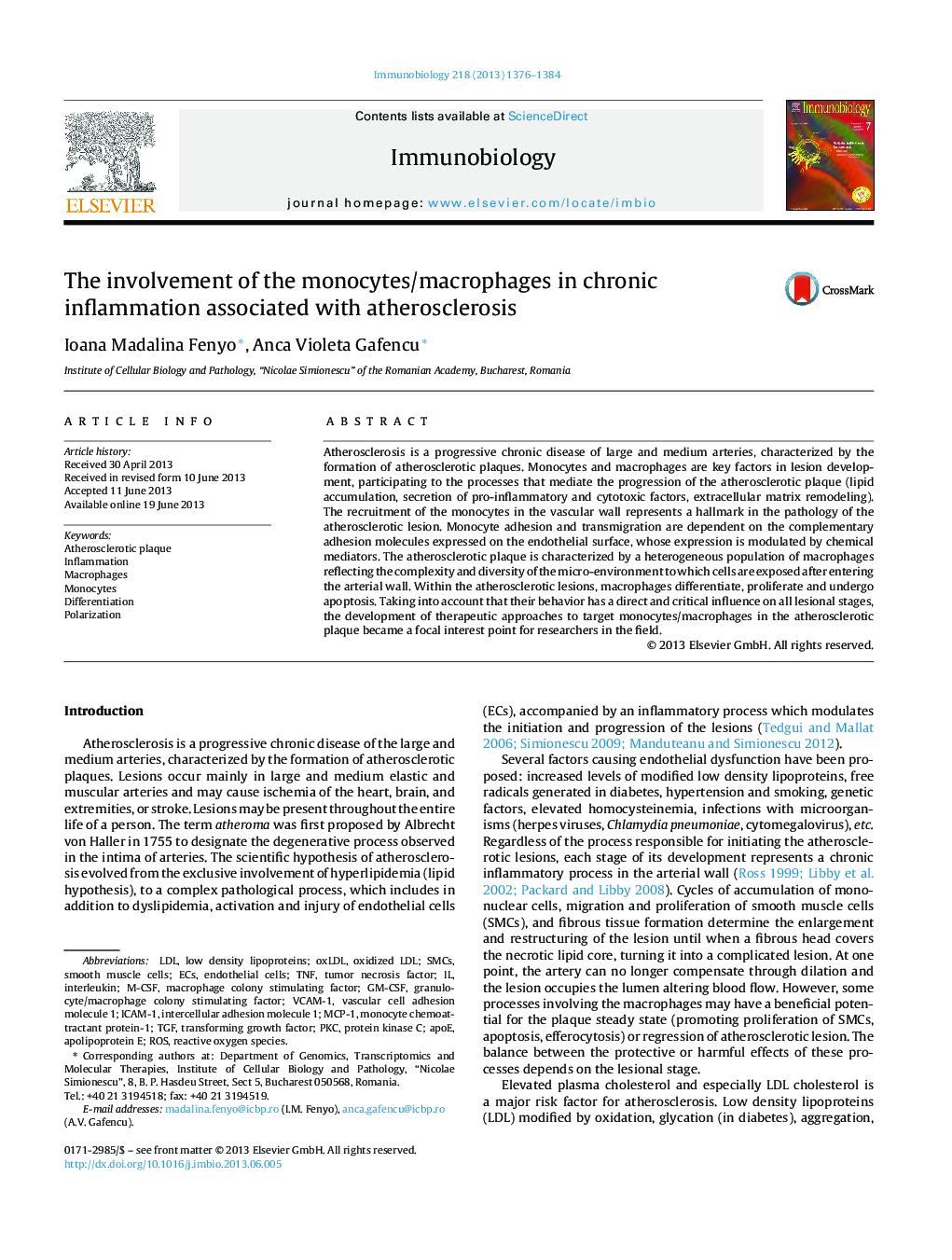| Article ID | Journal | Published Year | Pages | File Type |
|---|---|---|---|---|
| 2183453 | Immunobiology | 2013 | 9 Pages |
Atherosclerosis is a progressive chronic disease of large and medium arteries, characterized by the formation of atherosclerotic plaques. Monocytes and macrophages are key factors in lesion development, participating to the processes that mediate the progression of the atherosclerotic plaque (lipid accumulation, secretion of pro-inflammatory and cytotoxic factors, extracellular matrix remodeling). The recruitment of the monocytes in the vascular wall represents a hallmark in the pathology of the atherosclerotic lesion. Monocyte adhesion and transmigration are dependent on the complementary adhesion molecules expressed on the endothelial surface, whose expression is modulated by chemical mediators. The atherosclerotic plaque is characterized by a heterogeneous population of macrophages reflecting the complexity and diversity of the micro-environment to which cells are exposed after entering the arterial wall. Within the atherosclerotic lesions, macrophages differentiate, proliferate and undergo apoptosis. Taking into account that their behavior has a direct and critical influence on all lesional stages, the development of therapeutic approaches to target monocytes/macrophages in the atherosclerotic plaque became a focal interest point for researchers in the field.
